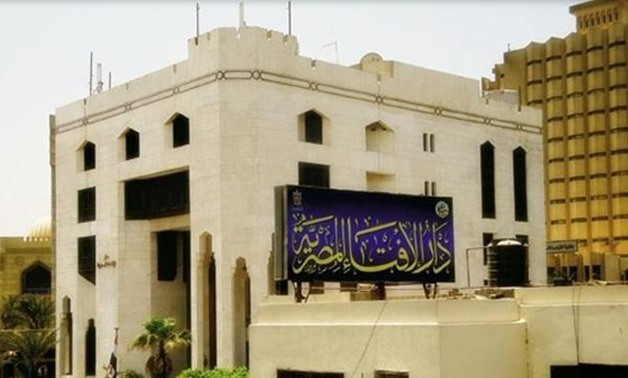
On Thursday, the eve of expected protests in Egypt, Dar Al-Iftaa issued a fatwa saying that any divisive or purposeful acts and encouragement of violence is a call for “sedition”.
In a tweet, Dar Al-Iftaa said: “In these defining moments and amid these challenges, any action deemed a national concern, or involving chaotic means against the state are from souls blinded by hostility to their homeland.”
The tweet comes on the eve of calls for protests by Egyptian opponents abroad, on Friday, November 11, against President Abdel Fattah al-Sisi, in line with holding the UN climate summit in Sharm el-Sheikh.
In a recent statement, journalist Ibrahim Issa said that allowing the Muslim Brotherhood to “return from its winter hibernation is tantamount to the snake coming out from its hole”, stressing that “the political Islam movement is outside the national [political] framework.”
Issa added in a commentary during the “Cairo Talk” program, presented on the al-Qahera wal Nas channel, on Wednesday evening, that the continued calls by the Muslim Brotherhood for demonstrations on November 11 are frustrating and desperate attempts and even oast events have previously failed.
“The November 11 call is a hoax and was never taken seriously from the first moment.
There is only loud noise on the Internet. Nothing will happen on November 11, and Egypt will not witness any kind of protests,” he said.
“The Brotherhood is a subversive movement and a group that is detached from reality and society.
They are a group that boasts stupidity, idiocy, dissociation from reality and denial of the truth.
They are now betting on a state of frustration in the street due to the world economic crisis” Issa said.
The current Egyptian inflation rate is as follows :
The Central Agency for Public Mobilization and Statistics (CAPMAS) data showed in October that the annual consumer price inflation in Egyptian cities recorded its highest level in nearly four years
The annual consumer price inflation increased to 15 percent in September, compared to 14.6 percent in August, the agency announced in a statement.
This is the highest annual rate of consumer price inflation in Egyptian cities since November 2018, when it recorded 15.7 percent.
The Egyptian pound devaluation
The Central Bank of Egypt (CBE) issued a statement on October 28, announcing the flotation of the Egyptian pound as part of reform measures to ensure macroeconomic stability and achieve sustainable and comprehensive economic growth.
Egypt first devalued its currency by 48 percent in 2016, allowing it to float freely in order to meet a key demand by the International Monetary Fund to secure a three-year US$12 billion loan.
The CBE announced the devaluation of the Egyptian pound for the second time in March by nearly 17 percent.
Fitch Solutions, a research company of Fitch Ratings Agency, expects a slowdown in the growth of economic activity in Egypt during the next 12 months, as a result of the repercussions of the Russian-Ukrainian war.
It explained that this will be reflected in the decline in economic growth estimates to 4.3 percent in the current fiscal year, compared to 6.2 percent in 2021/22.
Egypt’s loans from International Monetary Fund
The head of the International Monetary Fund (IMF) mission to Egypt announced in a press conference, on October 27, held with Egypt’s Prime Minister Mostafa Madbouly, the governor of the Central Bank of Egypt and a number of ministerial officers that they came up with an agreement has been concluded with Egypt on a loan worth US$3 billion over a period of six months.
Egypt has obtained loans from the IMF, amounting to about $20 billion since 2016, as part of the implementation of the economic and social reform program.
It also obtained quick financing to face the repercussions of coronavirus pandemic, and has already started paying the first loan installments.
A drastic solution is needed
On the other hand, Hisham Badawy, an economist, stressed in an earlier statement that the IMF loan will not radically solve the economic crisis in Egypt, adding that rationalizing consumption is not a solution to confronting the high prices.
The solution ultimately lies in the search for additional income and the search for additional resources.
Badawy added, in an interview on the “Cairo Talk” program, with journalist Ibrahim Issa, on Al-Qahirah Wal-Nas channel in October that the Egyptian government must go for intensive production to get out of its economic crisis, pointing out that Egypt will be at the gate of an economic storm if the crisis continues.




